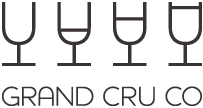Brexit pain as wine prices rise further, says trade
There has been no let-up in the run of price rises on wine since the UK voted to leave the European Union and the pain may be about to get worse, according to the latest figures from the Wine & Spirit Trade Association.
The average price of a bottle of wine in the UK rose to £5.58 between the Chancellor’s Budget in March and 17 June 2017, up 4% on the previous year, said the WSTA. Its statement coincided with Parliament’s first reading of a Brexit divorce bill that would transfer EU rules into UK law.
Average wine prices had already passed the £5.50 mark for the first time in the final three months of 2016, according to figures from the Wine & Spirit Trade Association (WSTA).
While this run of price rises may not immediately impact drinkers of premium and fine wines, the WSTA warned that the entire industry is facing a ‘triple whammy’ of price pressures going into the autumn.
‘For the first time we can see the how prices have been affected by the triple whammy resulting from Brexit’s impact on the pound, rising inflation and the 3.9% inflationary duty rise on alcohol imposed by the Chancellor at his Budget in March,’ said the WSTA, which is holding its annual conference in London today (12 September).
‘I am sad to say the pain doesn’t end here,’ said the WSTA’s chief executive, Miles Beale. ‘The Autumn Budget is set to see alcohol duty rise by inflation once again,’ he added, calling for a ‘time out’ on tax rises.
The WSTA said that it commissioned a YouGov poll that found four out of every five respondents concerned about the prospect of paying higher prices for food and drink. The WSTA has committed to working with the government in order to achieve the best possible deal in Brexit negotiations.
Hurricane Irma: Rapid response team ‘rescues’ fine wines
Some Florida residents reportedly made hurried calls to wine removals specialists in an attempt to protect valuable bottles from Hurricane Irma, which has left a trail of destruction through the US state and across the Caribbean, with dozens of deaths reported.
It won’t have topped the list of concerns for many, but wine removals specialist Xpeditr said that its ’emergency response team’ was dealing with requests in Florida to rescue precious bottles from the path of Hurricane Irma.
Around 20,000 bottles worth up to $5 million in total had been removed from cellars in the US state by the end of last week, according to Xpeditr’s chief executive, Adam Gungle, who was interviewed by the Reuters news agency. Some vintages pre-dated the First World War, he said.
Gungle was unable to comment straight away when contacted, but has been in the region with his team.
The news comes amid widespread reports of devastation and mass flooding in parts of the Caribbean and also Florida following the Hurricane Irma storm, which has seen 145mph winds batter buildings and coastlines. There had been 37 confirmed deaths across the Caribbean and 10 deaths in the US by Tuesday morning (12 September).
In Miami, authorities said that 72% of the city was without power on Monday 11 September. Police in Orland, Florida, warned people to stay indoors and told those who might be ‘sight-seeing’ in damaged areas to go home. ‘We are not joking,’ police said. Richard Branson, the British billionaire entrepreneur, sheltered in a concrete wine cellar at his Necker island resort as the hurricane passed.
He emerged to find significant damage on the island, he reported in a blog post. He also expressed concern for communities in the region and called for financial aid to be given to badly affected areas of the Caribbean, including the British Virgin Islands (BVI).
Calls to Xpeditr suggest that collectors and the trade appear to have learned some lessons from previous natural disasters.
Millions of dollars of wine was ruined and damaged when Hurricane Sandy hit New York in 2012, with cellars in Manhattan submerged in water. Sandy prompted Xpeditr to set up its emergency response service, Gungle told Reuters.
English wine makes up half of UK Government’s cellar purchases
The UK government has defended its record on English wine by saying that it buys more homegrown wines for its hospitality events than from any other nation.
Figures show that English wine accounted for 1,500 of the 3,052 bottles bought for the UK government’s hospitality cellar in the 2016/17 tax year, and that 52 per cent of wine consumed at ‘high profile receptions’ was English.
Ten years ago, just 20 per cent of wines served at these events were from England, said the Foreign Office, which manages the cellar. Its release of the figures follows criticism from some quarters over the amount of government support given to the UK wine industry, which has won several high-profile awards in recent years. English sparkling wine has been served at official functions for several years.
‘The UK produces some of the finest wines in the world, and the Foreign Office is committed to showcasing them to a global market,’ said a spokesperson for the Foreign Office. ‘Our food and drink products are more popular than ever and we will continue to do all we can to support this vital sector, and create new export opportunities.’
Whilst the majority of wines produced in the UK are sparkling, the Government’s wine cellar is also serving English still whites and rosés to guests. ‘Earlier in the year, we urged Government departments to ‘Serve British’ and it’s great to hear that the FCO is stocking, serving and therefore supporting English wine,’ said Miles Beale, CEO of the Wine and Spirit Trade Association.
Earlier in the year, a bill was proposed to Parliament to make British embassies serve UK wines.
‘There has been a concerted move by the industry, the producers and huge support of WSTA over the last years to encourage Government to serve British products and in so doing, show their support for the fantastic food and drink industry that we have,’ said Julia Trustram-Eve, of trade body UK Wine Producers.
‘It’s great to see that both FCO and overseas missions are now serving English wine and flying the flag for our exciting industry.’
Not everyone is such a fan, however.
Chef Marco Pierre-White is reported to have said ‘English wine is nonsense’ and that only a ‘numpty’ would buy it, at the launch of one of his restaurants this weekend.
‘Of course everyone is entitled to their own opinions, but there are many more fellow restaurateurs who would beg to differ, and do list English wines,’ said Julia Trustram-Eve.




